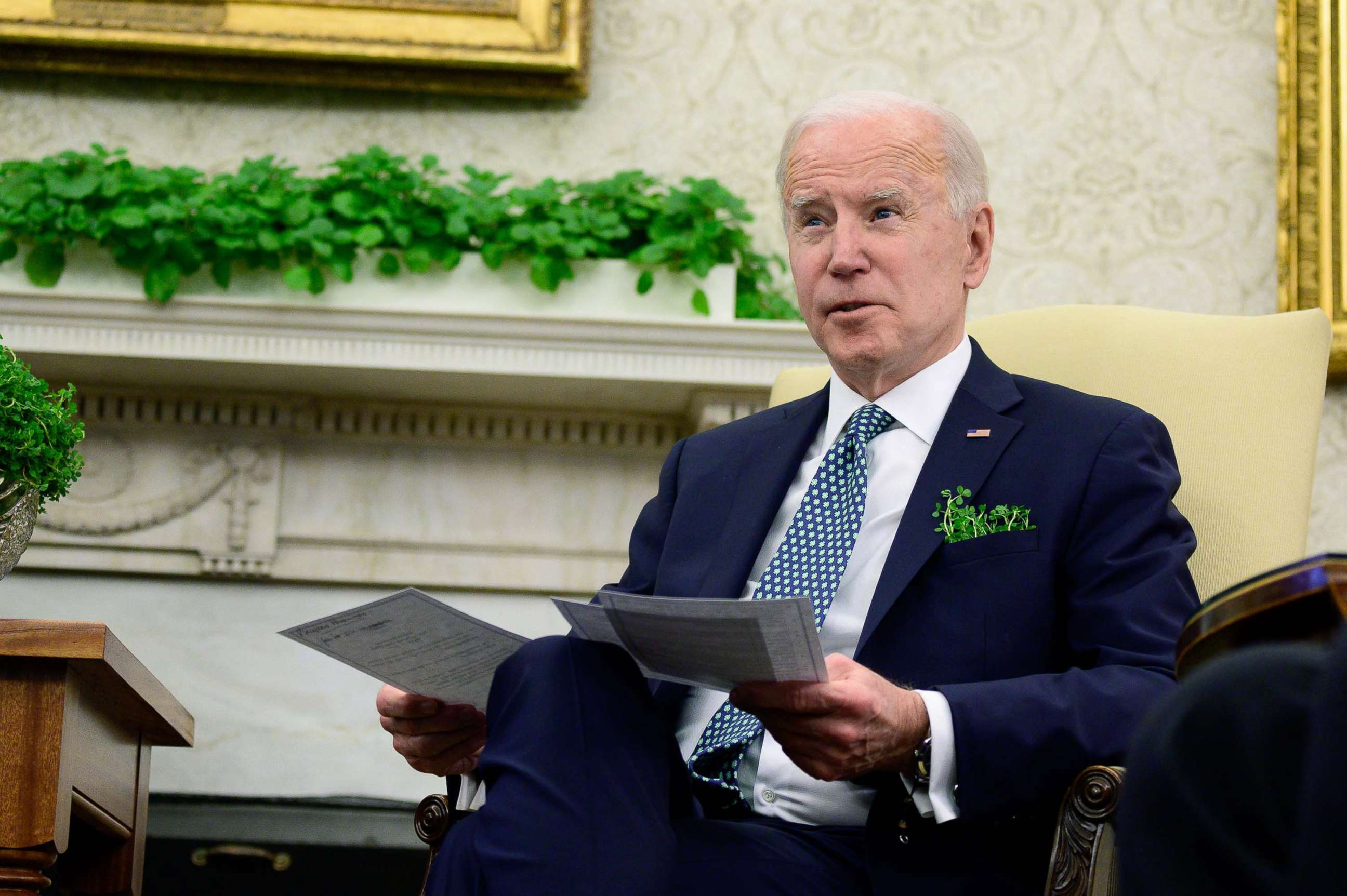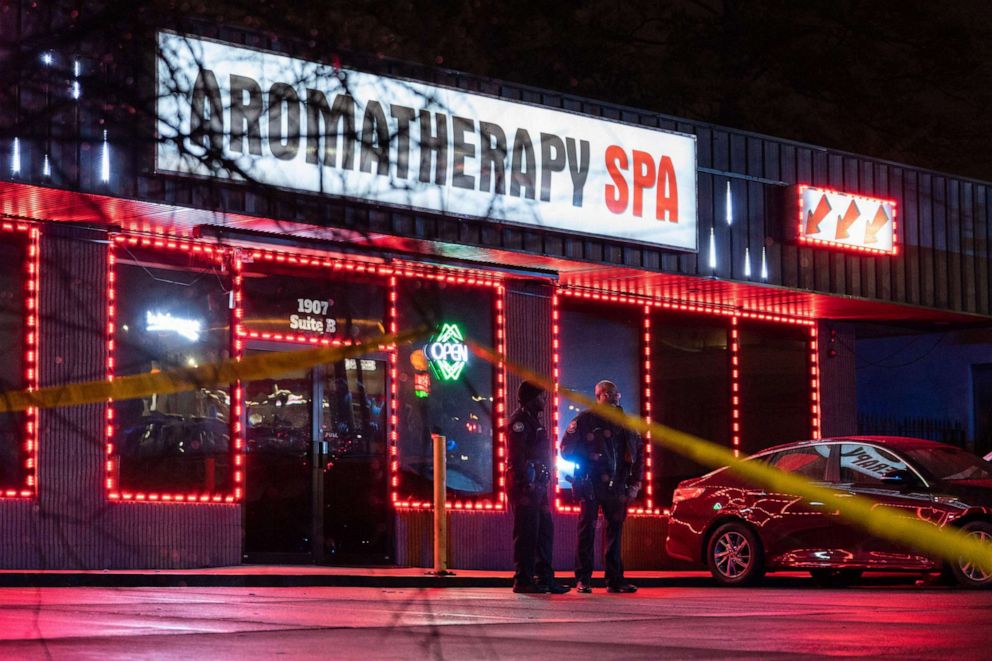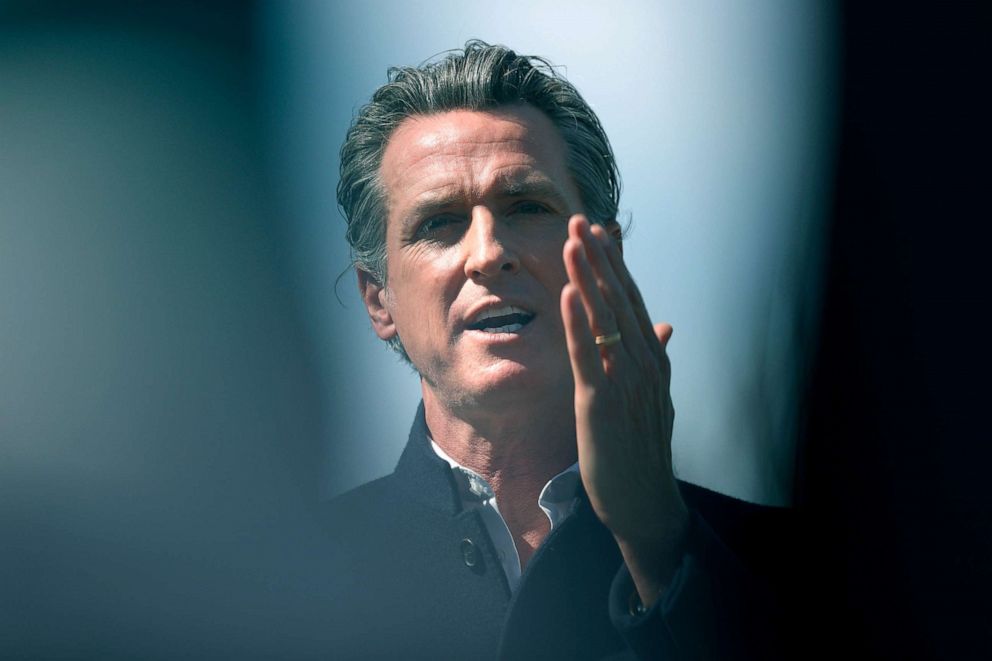Biden jolts filibuster debate as voting rights clashes approach: The Note
The future of the filibuster is unlikely to be a hypothetical for long.
The TAKE with Rick Klein
He still believes there will be a Republican "epiphany." He doesn't get a vote, even though he used to be a senator, and it's not clear that the votes are actually there anyway.
Yet, the debate about how to end Senate debates has been jolted by President Joe Biden's support for modifications to the filibuster rule. While his support for a so-called "talking filibuster" wouldn't change the 60-vote threshold, it's being interpreted as a step toward something many progressives hope will soon be inevitable.
The future of the filibuster is unlikely to be a hypothetical for long. Senate Majority Leader Chuck Schumer vowed Wednesday to put a major voting rights bill on the Senate floor, after a bill similar to the House-passed legislation gets a Senate committee hearing next week.

"If [Republicans] don't join us," Schumer said, "our caucus will come together and decide the appropriate action to take. Everything is on the table; failure is not an option."
With a wide range of states considering bills that would limit access to voting options, momentum is building among Democrats to either change Senate rules outright or make a special exemption for voting rights bills.
Senate rules have been changed in recent years not because of abstract principles but because of real-world implications. The pieces are in place for a major showdown over an issue fundamental to democracy, and Biden seems to have chosen a side.
The RUNDOWN with Averi Harper
Asian American lawmakers, activists and professors will convene on Capitol Hill today to call attention to the disturbing rise of discrimination and violence against members of the Asian American community.
Advocacy group Stop AAPI Hate tracked nearly nearly 4,000 hate incidents committed against Asian Americans from March 2020 through the end of last month. This month, the number of incidents continues to climb across the country and while authorities haven't determined a motive in the Atlanta-area spa shootings, six of the eight victims killed were Asian women.

"When you kill eight people, that's driven by hate. We may not know the details yet, but it's clearly driven by some form of hate," said Georgia Sen. Raphael Warnock in an interview with ABC News.
Many have pointed to former President Donald Trump's racist rhetoric associating COVID-19 with China as a driver of this kind of hate, but anti-Asian sentiment in the U.S. certainly predates the Trump era.
President Biden put forth an executive order in January condemning violence against the AAPI community. Additionally, Congressional Asian Pacific American Caucus Chair Rep. Judy Chu, D-Calif., is calling for the passage of the No Hate Act, which would shore up the federal hate crimes reporting system and offer resources to victims.
The past year has shown it's urgently needed.
The TIP with Meg Cunningham
Organizers for the effort to recall California Gov. Gavin Newsom announced Wednesday night they had collected over 2.1 million signatures, with more expected to be tallied in the coming hours, capping off a monthslong statewide effort to collect just under 1.5 million valid signatures to qualify for a statewide ballot.
"Gov. Newsom has finally realized that this is a viable threat to his future. And he has come out swinging, and he has missed his target on every point," lead proponent Orrin Heatlie said on Wednesday night in a town hall announcing the numbers.
Newsom acknowledged during an interview on ABC's "The View" on Tuesday afternoon that it appears organizers have the necessary signatures, adding that he is worried, and his team is taking it seriously.

Statewide Republicans aren't worried, but they're certainly taking the potential of being on a ballot by the fall very seriously. Former San Diego Mayor Kevin Faulconer has launched an ad urging a "California comeback," saying that the only comeback Newsom is looking for is his own. On Wednesday, former Rep. Doug Ose announced his intent to appear on the recall ballot if it qualifies. If not, he said, he intends to run against Newsom in 2022.
The secretary of state's office told ABC News that they plan to update the verified signature count within the coming days. The last update came in early February, when organizers had just under 670,000 valid signatures out of over 1 million submitted.
THE PLAYLIST
ABC News' "Start Here" podcast. Thursday morning's episode features "Nightline" co-host Juju Chang, who brings us the latest on the string of shootings at Atlanta-area spas. George Stephanopoulos tells us more about his exclusive interview with President Joe Biden. And ABC News' Elizabeth Schulze explains why the IRS is yet again pushing back the tax filing deadline. http://apple.co/2HPocUL
ABC News' "Powerhouse Politics" podcast. ABC News Senior White House Correspondent Mary Bruce joins Chief Washington Correspondent Jon Karl and Political Director Rick Klein to discuss President Joe Biden's exclusive interview with ABC News' George Stephanopoulos. Plus, Karl shares some new reporting included in the just-released paperback edition of his book, "Front Row at the Trump Show." https://bit.ly/3oMKdUP
WHAT YOU NEED TO KNOW TODAY
Download the ABC News app and select "The Note" as an item of interest to receive the day's sharpest political analysis.
The Note is a daily ABC News feature that highlights the key political moments of the day ahead. Please check back tomorrow for the latest.



